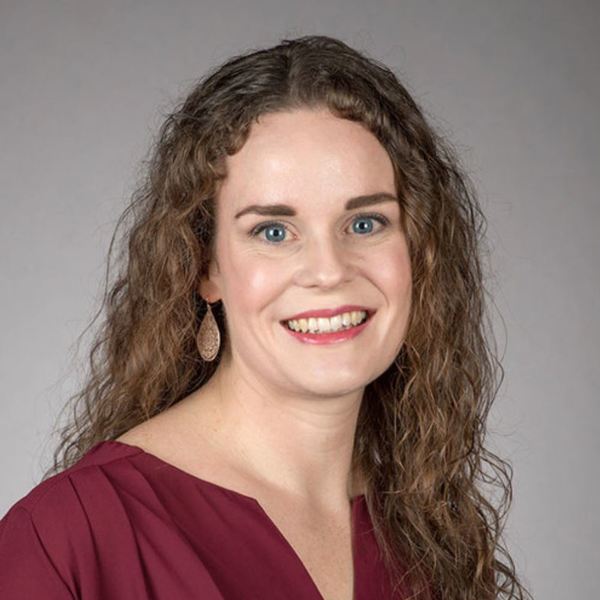In a response to U2 frontman Bono’s criticism that Christian music lacks honesty, a recent piece at Aleteia named Catholic singer-songwriter Audrey Assad as one of five “real” Christian singer-songwriters, citing her latest latest album Inheritance as the reason behind their choice. What sets Assad apart from the other four artists named in the article provides the focus for this review of her aptly-named album: nearly every track is an arrangement of a hymn or text that has been part of the musical tradition of the Church for decades, or, in some cases, centuries. Assad has recorded an array of repertoire that played a significant role in her own spiritual life and development—from the time when she sang hymns with the Plymouth Brethren community in which she was raised, to her faith life now as a convert to Roman Catholicism.
While there are perennially familiar and beloved hymns like Holy, Holy, Holy and Be Thou My Vision and How Can I Keep from Singing, there are some surprises too. Assad’s inclusion of I Wonder as I Wander brings the familiar Christmas carol into an unfamiliar context, thereby allowing listeners to place ourselves in the scene more directly. We imagine not a shepherd wandering the fields under the night sky of Bethlehem, but ourselves, wandering amid the darkness of our own lives, contemplating the mystery of the love that led Jesus from the crib to the Cross. Even the opening track, Ubi Caritas, may come as a surprise to listeners. Here is a young artist beginning her new album with one of the most ancient texts in the realm of sacred music. Assad’s original melody for the Ubi Caritas text is lyrically haunting and darkly evocative. This is no saccharine notion of caritas as niceness; it is a caritas stained with the blood of self-gift—the caritas modeled by Christ and demanded of all who bear his name.
Although the majority of Inheritance consists of familiar hymns, there are also two original songs on the album well worth mentioning. The first, New Every Morning, contains scriptural imagery both rich and fruitful. Assad brings the “In the beginning” of Genesis into conversation with the “In the beginning” from the prologue to the Gospel of John, pondering the role of God’s mercy in the beginnings of both the first creation and the new creation, affirming over and over, “Your mercies are new, your mercies are new, new every morning.” As someone who struggles immensely to get out of bed in the morning, I have found that beginning the day with this song immediately puts my heart and mind in the framework of awe-filled gratitude that God in his mercy has granted me another day of life. The other original song, Even Unto Death, is a meditation on the persecutions and martyrdoms being suffered by Christians in the world today. Assad, the daughter of a Syrian refugee, describes the song’s genesis thus:
I thought of the many martyrs around the world, but especially those in the Middle East, and wondered to myself what would be running through my head if I knew my life was about to be taken because of my faith. . . . And so I began to write the song that became Even Unto Death, praying for the martyrs and hoping for even a shred of their courage. That’s something I would want to sing about on Sundays.
The wide array of hymns recorded on this album demonstrates that Assad has been steeped in the “beauty ever ancient” of the musical tradition she has inherited, and it is precisely this rootedness that in turn allows her to contribute to the “beauty ever new” in her deeply spiritual and profoundly moving songwriting.
The album is described (again, aptly) on Assad’s website as “A Soundtrack for Prayer.” Indeed, Assad views all of her albums this way, and articulates her particular style as “cinematic”; and yet this music, despite the breadth of scope implicit in such a descriptor, resonates with listeners on an intimate, personal level as well. The hymns are arranged with impeccable musical taste; the instrumentation never ventures into the trite or predictable, and the creativity at work here, particularly in the quiet radiance of Assad’s vocals, breathes new life into hymns that people may have written off after years of hearing them sung poorly. As I’ve affirmed elsewhere, creative and artistic endeavors such as this—taking the familiar and reinterpreting it in unfamiliar ways—are part and parcel of the work of the New Evangelization. Assad is bringing the hymn tradition—a significant part of the Christian musical inheritance—to life in new and beautiful ways, reminding listeners of its beauty, or perhaps introducing them to it for the first time, encouraging them to find in this music a way of entering more deeply into relationship with God. Whether our appreciation of this musical tradition has lain dormant for some time, or whether it has never existed at all, Inheritance provides a stunning point of entry into Christian hymnody, offering listeners an aide to prayerful contemplation and a way of lifting their hearts in sung praise to God.
